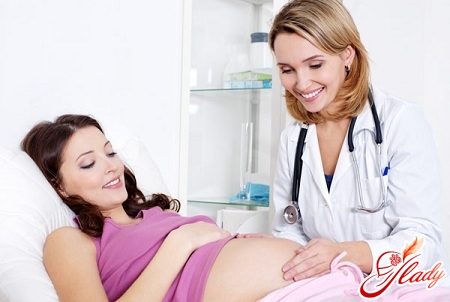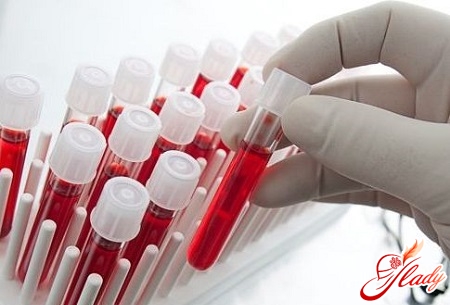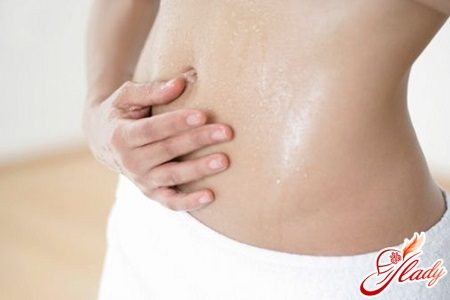 During pregnancy, the expectant mother is faced witha large number of different surprises. Both pleasant and not so pleasant. And one of these surprises is heartburn. Moreover, there is a very widespread opinion that heartburn appears in the second half of pregnancy. However, this is nothing more than just a myth. Thousands of women will tell you that they have encountered such a phenomenon as heartburn during early pregnancy. Moreover, heartburn during pregnancy can appear even in those women who had no idea about such a problem before. But during pregnancy, they get a great chance to personally get acquainted with all the "delights" of heartburn. Of course, few people enjoy this phenomenon. That is why today we will try to figure out why this heartburn occurs and how to deal with it.
During pregnancy, the expectant mother is faced witha large number of different surprises. Both pleasant and not so pleasant. And one of these surprises is heartburn. Moreover, there is a very widespread opinion that heartburn appears in the second half of pregnancy. However, this is nothing more than just a myth. Thousands of women will tell you that they have encountered such a phenomenon as heartburn during early pregnancy. Moreover, heartburn during pregnancy can appear even in those women who had no idea about such a problem before. But during pregnancy, they get a great chance to personally get acquainted with all the "delights" of heartburn. Of course, few people enjoy this phenomenon. That is why today we will try to figure out why this heartburn occurs and how to deal with it.
Causes of heartburn and its symptoms
First, let's find out what heartburn is.Essentially, this is the reflux of stomach contents – in particular, hydrochloric acid – into the esophagus. This phenomenon is called reflux. Under the influence of gastric juice, the walls of the esophagus become irritated and inflammation occurs. In late pregnancy, the appearance of heartburn can be easily explained by the increasing size of the uterus, which presses heavily on the stomach. But why does heartburn occur in early pregnancy? After all, even the old folk belief does not explain this. Do you know about the folk belief? It used to be believed that heartburn occurs during the period when the baby's hair grows? Although, of course, this is nothing more than a prejudice that has no scientific basis. Modern science explains the appearance of heartburn in early pregnancy by a banal change in the hormonal background of the expectant mother. In particular, a strong increase in progesterone levels. This hormone is necessary for the normal course of pregnancy and fetal development. For example, it is responsible for relaxing the smooth muscles of the uterus to eliminate the likelihood of developing tone and, as a result, spontaneous miscarriage in the early stages of pregnancy. However, the effect of progesterone extends not only to the muscles of the uterus, but also to all other organs. This means that the tone of the sphincter, which is located between the stomach and the esophagus, also decreases. As a result, the contents of the stomach are thrown into the esophagus and, as a result, heartburn appears. And the higher the level of progesterone, the more the expectant mother is annoyed by heartburn. Expectant mothers characterize heartburn as a burning sensation in the chest and / or throat, most often very painful. Moreover, sometimes heartburn is a kind of trigger that provokes the appearance of severe nausea and vomiting. As one expectant mother put it - the feeling as if you are a fire-breathing dragon from a fairy tale. Are you familiar with this feeling? You should not tolerate it - after all, heartburn can be kept under strict control. Of course, if you know how to do it right. This is exactly what we are going to tell you now.
Compliance with the therapeutic diet
I guess no one needs to explain how important it isfor the expectant mother proper nutrition. However, very often women neglect the diet, finding various unconvincing excuses and justifications. But an irrational diet can not only harm the baby and lead to the development of vitamin deficiency in the mother, but also provoke the development of severe and painful heartburn. And the woman will have to willy-nilly reconsider her diet. So is it worth bringing it to this? First, put your diet in order:
- Meal time
If before pregnancy you were used to the whole daystarving, grabbing a bun or a cup of coffee on the run, and eating your fill in the evening, will not be easy for you during pregnancy. After all, such a diet is in no way acceptable - meals should be fractional. Put small portions, but eat often - then the load on the stomach will be very low, and the feeling of hunger will not bother you. Eat slowly, chewing food thoroughly. Doctors give one universal piece of advice that helps prevent the occurrence of not only heartburn, but also toxicosis. In the evening, prepare and put something light near the bed - for example, cookies or nuts. In the morning, without getting out of bed, eat them - a very small amount, no more than 20 grams. After that, lie down for another 10 minutes. And you cannot eat later than two hours before going to bed. If the feeling of hunger is very strong, you can drink a glass of kefir or eat 100 grams of low-fat cottage cheese. By the way, cottage cheese is an indispensable product during pregnancy – it helps with heartburn and nausea, and protects the expectant mother and her baby from a lack of calcium.
- List of Prohibited Products
Be careful what you eat.If you do not want to become a victim not only of heartburn, but also of gastritis, exclude certain products from your menu. First, give up all products containing artificial preservatives and dyes. Second, do not eat spicy, salty and smoked foods, fatty dishes. In addition, you will have to give up sweets - chocolates, cakes and candies are strictly prohibited. Of course, for many expectant mothers this is not so easy - after all, they love to treat themselves to something sweet! However, you can always find an alternative - for example, during pregnancy you can eat marshmallows, marmalade, marshmallows, dried fruits in reasonable quantities. Fruits and vegetables are also extremely necessary for the expectant mother - they contain a huge amount of vitamins, minerals, micro and macroelements. However, not all fruits and vegetables are so useful - many are quite capable of provoking the development of severe heartburn. Make sure that they are not too sour or, on the contrary, sweet, as this increases the acidity level of gastric juice. Watch what you drink too. The expectant mother should not drink any carbonated drinks - neither mineral water nor lemonade. Coffee, sweet and sour juices are also strictly prohibited. Doctors recommend that expectant mothers drink dried fruit compotes, fruit drinks, and clean drinking water. Never drink water while eating - this greatly increases the likelihood of developing severe heartburn.
- Featured Products
But the expectant mother shouldn't sit there hungry, should she?Of course not. There are a number of tasty products that are also extremely beneficial for the health of the mother and baby. For example, all types of fermented milk products - of course, with the exception of yoghurts and curd desserts containing artificial colors and preservatives. All types of fish, poultry and meat that the expectant mother eats should be low-fat. And all products should be either boiled, baked in the oven, or steamed - fried is strictly contraindicated. Try to reduce the consumption of animal fats to a possible minimum - they are extremely undesirable. As, by the way, all kinds of sauces - mayonnaise, ketchup, mustard and others. Completely exclude any seasonings and spices - you can leave only salt, and even then in very limited quantities. Salt can provoke not only heartburn, but also the development of edema. Agree, the prospect is not pleasant. Try to lie down for at least 15 minutes after eating - this will reduce the risk of developing heartburn by half.
Other measures to prevent heartburn
So, we've sorted out the nutrition.What other measures can prevent heartburn in the first half of pregnancy? There are not so many, but all these measures are extremely effective and have been tested by many women:
- Pose during sleep
Try not to sleep on your back - this is wherepose, the contents of the stomach are thrown into the esophagus most often. If you are used to sleeping on your back, it will be very difficult at first. Experienced mothers advise sewing a tennis ball into the back of your pajamas - you definitely will not be able to sleep on your back. Of course, you will suffer for a couple of nights, but then you will get used to it and will not roll over onto your back. By the way, this will be very useful to you a little later, when your tummy grows. It is during this period that difficulties with the sleeping position begin - the expectant mother can no longer sleep on her stomach, but she simply cannot sleep on her back. In the supine position, the increasing uterus presses on a large vein located directly under the uterus. This can lead to unpleasant consequences. During sleep, you need to raise your shoulders and head - you can use a pillow, because you are unlikely to have a bed with a raised headboard. This body position reduces the likelihood of the contents of the stomach being thrown into the esophagus. And therefore, the risk of developing heartburn is much less. And during your daytime rest – while reading or watching TV – try to take a similar position.
- clothing
Pay attention to the clothes you wear too.As a rule, comfortable and spacious dresses and overalls appear only closer to the second half of pregnancy. And in the first, while the tummy is not yet noticeable, the expectant mother gets by with her usual clothes. But, as a rule, it becomes tighter in just a month and a half. And squeezing the abdomen and chest inevitably leads to the release of gastric juice into the esophagus. Therefore, make sure that all the clothes you wear are spacious, do not press anywhere and do not restrict your movements. Perhaps you will have to buy something more spacious or borrow from a sister or friend for a while, if you do not have extra money. But you should not tolerate discomfort. After all, tightening the abdomen can lead to more dire consequences than the occurrence of heartburn. For example, an increase in the tone of the uterus is possible. This means that there is a risk of spontaneous termination of pregnancy. Although, of course, this happens in extremely rare cases.
Health care
Absolutely all of these measures that we told you abouttold, are safe and, moreover, useful for the expectant mother and her baby. As a rule, in the vast majority of cases they help to cope with attacks of heartburn. But in rare cases the problem still persists. Of course, you can put up with heartburn, consoling yourself with the fact that many people have it during pregnancy. Like, the baby will be born, and you can forget about heartburn, like a bad dream. But is it worth enduring? Of course not! The expectant mother needs only positive emotions, which are unlikely to be obtained from heartburn. It is much more correct and reasonable to seek help from a doctor. The doctor will help you choose medications that effectively suppress heartburn. As a rule, antacid drugs are used for this. They are safe for the health of the expectant mother and baby, and bring relief almost instantly. This happens due to the fact that the drugs act locally - directly in the stomach, are not absorbed into the blood, and do not reach the baby. The principle of action of these drugs is simple - they neutralize the hydrochloric acid of the gastric juice. And therefore, they relieve heartburn. Most often, drugs such as Maalox, Gaviscon, Almagel are used to treat heartburn in pregnant women. But drugs containing sodium and magnesium are strictly contraindicated for expectant mothers. That is why pharmacological drugs should only be prescribed by a doctor - self-medication can be harmful. In very rare cases, even strong antacid drugs are completely powerless - heartburn persists. As a rule, heartburn in such cases is extremely strong and painful, depriving a woman of sleep and peace. In this case, doctors resort to radical methods of treatment - they prescribe special drugs. In any case, you are unlikely to be able to do without a visit to the doctor. Have a positive pregnancy and easy delivery! We advise you to read:









